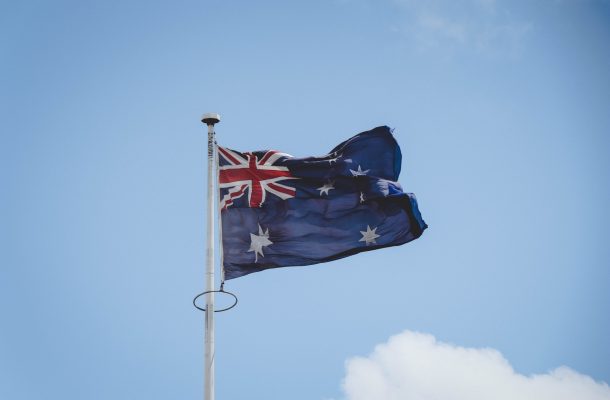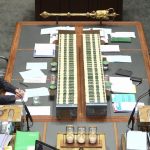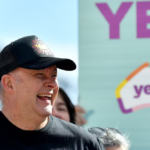Citizenship, nationhood and the 26th of January

Arguments for changing the date of the national day are well rehearsed – 26th January cannot be inclusive and respectful of everybody. National days are supposed to celebrate what nations hold in common.
Arguments for keeping the date may also refer to the celebration of common nationhood, but they don’t explain how Indigenous Australians fit in to the celebration. They don’t explain how the arrival of the British First Fleet on 26th January 1788 is everybody’s day?
Responding to the argument that some Indigenous people feel excluded from the kind of nationhood that 26th of January represents, the National party Deputy Leader Senator Bridget McKenzie told Sky News Australia in September last year that:
The Prime Minister’s argument that Indigenous Australia may be better celebrated on another day brings a new dimension to the debate. Perhaps suggesting no desire for an inclusive national day.
No sense that ‘working together’ may require serious attention to the voice of ‘a certain section of that community’. Suggesting no need to create a kind of citizenship that all people can see as meaningful and having moral integrity.
The intention is to make the argument go away. However, a separate day’s divisive potential is clear. ‘You’ can have ‘your’ day, now leave ‘us’ to have ‘ours’. Leave ‘us’ to celebrate ‘our’ nationhood.
‘Working together’ is a greater ambition. Failing to work together successfully is why people can’t agree on shared nationhood.
In 2019 the debate invites the same consideration that Indigenous Australians raised on the 26th of January 1938, the Day of Mourning, on the First Fleet’s 150th anniversary.
For those interested in ‘working together’ and creating the foundations of an inclusive and respectful nation, the organiser Jack Patten’s remarks in 1938 are as relevant in 2019: ‘we ask for a new policy which will raise our people to full citizen status and equality within the community’.
Prime Ministers are expected to defend nationhood. But nationhood needs deep and thoughtful expression.
The Prime Minister doesn’t like ‘boardies and thongs’ being worn to citizenship ceremonies. Many would agree. But it’s not a matter on which people worried about electricity prices, management of the Murray-Darling Basin, or stable government would change their votes.
The political strategy is to create a distraction from these things that the Prime Minister doesn’t want people to think about. Presumably Liberal party polling and focus group research is telling the Prime Minister that there’s not much public support for changing the date.
The Labor party is also taking care not to give the argument momentum.
However, creating too much of a distraction looks like desperation. If there are not many votes in changing the date, perhaps there are also not many votes in creating arguments with Councils over when they must hold citizenship ceremonies?
Some Councils have stopped holding citizenship ceremonies in deference to indigenous arguments against 26th January as the national day. Others don’t hold them because there’s nobody wanting to become a citizen that day. Others say it’s too hot.
Compelling Councils to hold citizenship ceremonies on Australia Day doesn’t strengthen the arguments for keeping the date.
However, the link between citizenship and the national day is important in other ways.
The national day is a day for thinking about what it means to be a citizen. What’s good about the nation; what are the values we hold in common; what makes us a community; what makes us unique? What allows us to move beyond some people’s exclusion from shared nationhood?
What kinds of political values do we need for a national newspaper to recoil from dismissing some Indigenous people’s reservations about the national day as simply a ‘push by the left-wing lobby’.
Dismissing the argument in these terms is a dismissal of indigenous agency; trivialising independent Indigenous thought and trivialising the right to raise a matter of concern for public debate.
The Australian drew its conclusions from an opinion poll commissioned by the right wing lobby Advance Australia; so also making a claim to the right’s moral priority over the left in public debate.
Independent opinion polling has also supported keeping the national day on 26 January, though not by the same margin. However, if we are interested in ‘working together’ and really believe that 26th January can provide an inclusive day of national celebration we can’t allow the opinion poll of a partisan lobby group to have the final word.

Dominic O’Sullivan is Professor of Political Science at Charles Sturt University and Adjunct Professor in the Centre for Maori Health Research at the University of Auckland University of Technology. His recent publications include ‘We Are All Here to Stay’: citizenship, sovereignty and the UN Declaration on the Rights of Indigenous Peoples and Sharing the Sovereign: Recognition, Treaties and the State.














